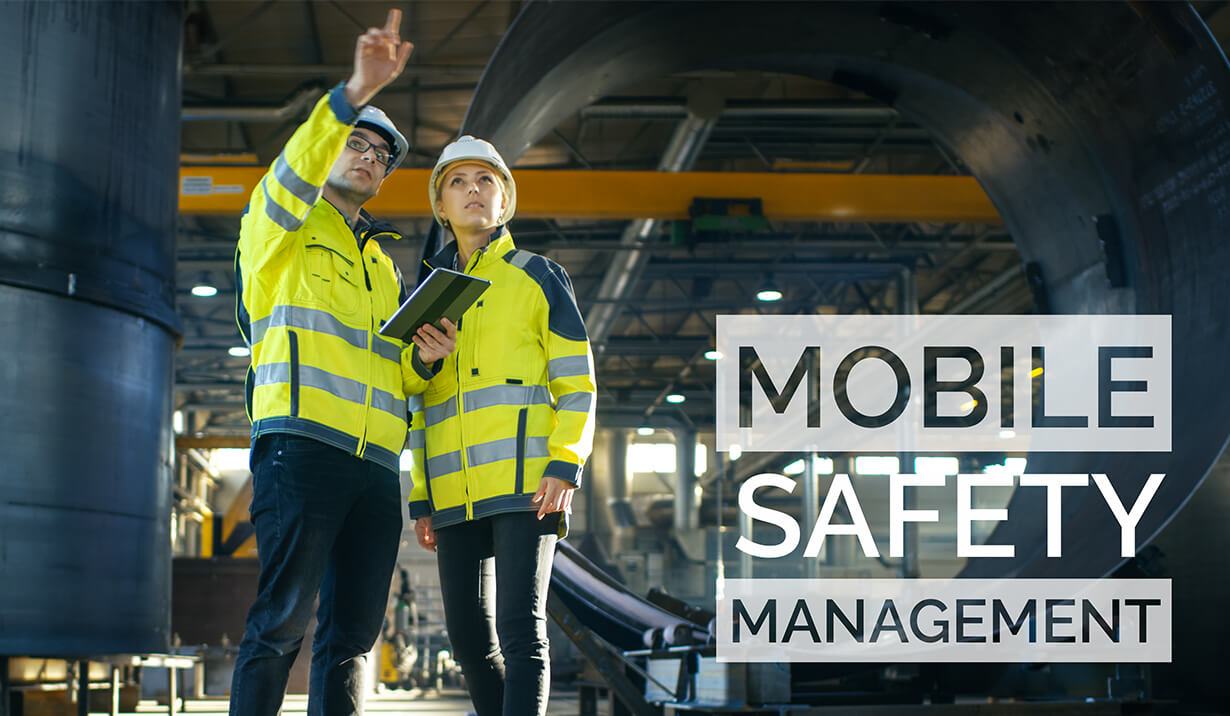Improving Construction Safety Through Mobile Safety Management
“A work culture where safety is not a top priority can really hamper a company’s ability to attract good workers and its ability to do business.” In 2012 alone, 4,628 workers were killed on the job in the USA according to the Occupational Safety & Health Association, which translates to 12 deaths per day across the country. Hazard communication was the second most frequently cited violation, an issue that can easily be prevented through proper Hazard Inspection Procedures.
Hazard Inspection Procedure
The purpose of hazard reporting is to try to stop accidents before they occur. Employees must be aware of their surroundings to prevent injury and ensure construction worker safety. One of the biggest factors is communication, which can be broken into three parts:
- Communication with the site supervisors
- Communication with the workers
- Communication by way of Toolbox Meetings
To instill a culture of safety communication within a company, it has to start from the top down. It is the site supervisor’s duty to be consistently aware of a jobsite’s hazards as they arise and communicate to the workers not only the hazard identification, but the steps that everyone should take to negate any risk. It is also the supervisor’s duty to make sure employees are following the appropriate company protocol when it comes to safety, such as equipment inspections and any other reports required to be completed previous to work.
Benefits of Safety Meetings
On the worksite, weekly and daily pre shift safety meetings or safety moments are increasingly becoming mandated. This is to ensure that all workers are made aware of all known or reasonably foreseeable health or safety hazards to which they are likely to be exposed by their work. A site-wide toolbox safety meeting is a great way to inform all employees at once the potential hazards at present time, and to get input from all in attendance on hazards that may be arising and the steps to take to avoid them.
Mobile Data Collection as an Example of Investing in Safety
The importance of improving construction safety as a cost controlling measure is often overlooked by companies as it doesn’t always display a tangible return and can seem like a time-demanding process. In reality, there is minimal cost for implementing and maintaining a safety program, and it doesn’t take long to acquire return on time invested. A main benefit is having a site that is accident free and not constantly shut down for days at a time because of multiple incidents. Once a company has established themselves with a good safety program and reputation, it will help differentiate them from their competitors and increase their chance of winning bids by providing peace of mind to whomever they are working for. A company that puts construction worker safety to the forefront of their priority list will have a greater chance of attracting good workers who care about their safety. A culture of non-safety can seriously hamper a company’s ability to do business.
Investing in a mobile data collection system is one way that many companies are finding value. Using smartphones and tablets instead of paper, safety procedures and inspection forms etc. can be completed, and as soon as information is collected in the field, it is viewable from the office, field, or anywhere. This means no more trips to the office to deliver forms, making companies more productive, operationally transparent, and cost effective; thus improving construction safety.
Visibility through Mobile Safety Management
The best way to achieve the highest standard of safety is to have a field safety manual that is user-friendly, applicable for the project being done, and available to the employees that are most affected by unsafe behaviours and conditions found in the workplace.
As we become more time-sensitive and move toward digital records, safety reporting and hazard inspection procedures are increasingly being completed on mobile devices such as smartphones or tablets. It can drastically improve organization and accountability and allows companies to add policies/procedures companywide without having to re-print documents.
A mobile, cloud-based safety system can also eliminate the need to store paper forms for months. Visibility of safety procedures and ease of completing will help with employee buy-in and make everyone’s job easier by improving communication from head office, through to supervisors and their workers.
Occupational Health & Safety of WorkSafe BC gives this advice on the subject: “Organizational safety goals should not be focused on the creation of safety culture, rather on improvement to the existing and ranging cultural foci that already exist in the many influencing groups to which your employees are exposed. Rather than questioning, ‘Do we have a safety culture?’ ask, ‘Are we managing our safety culture or being managed by it?’



